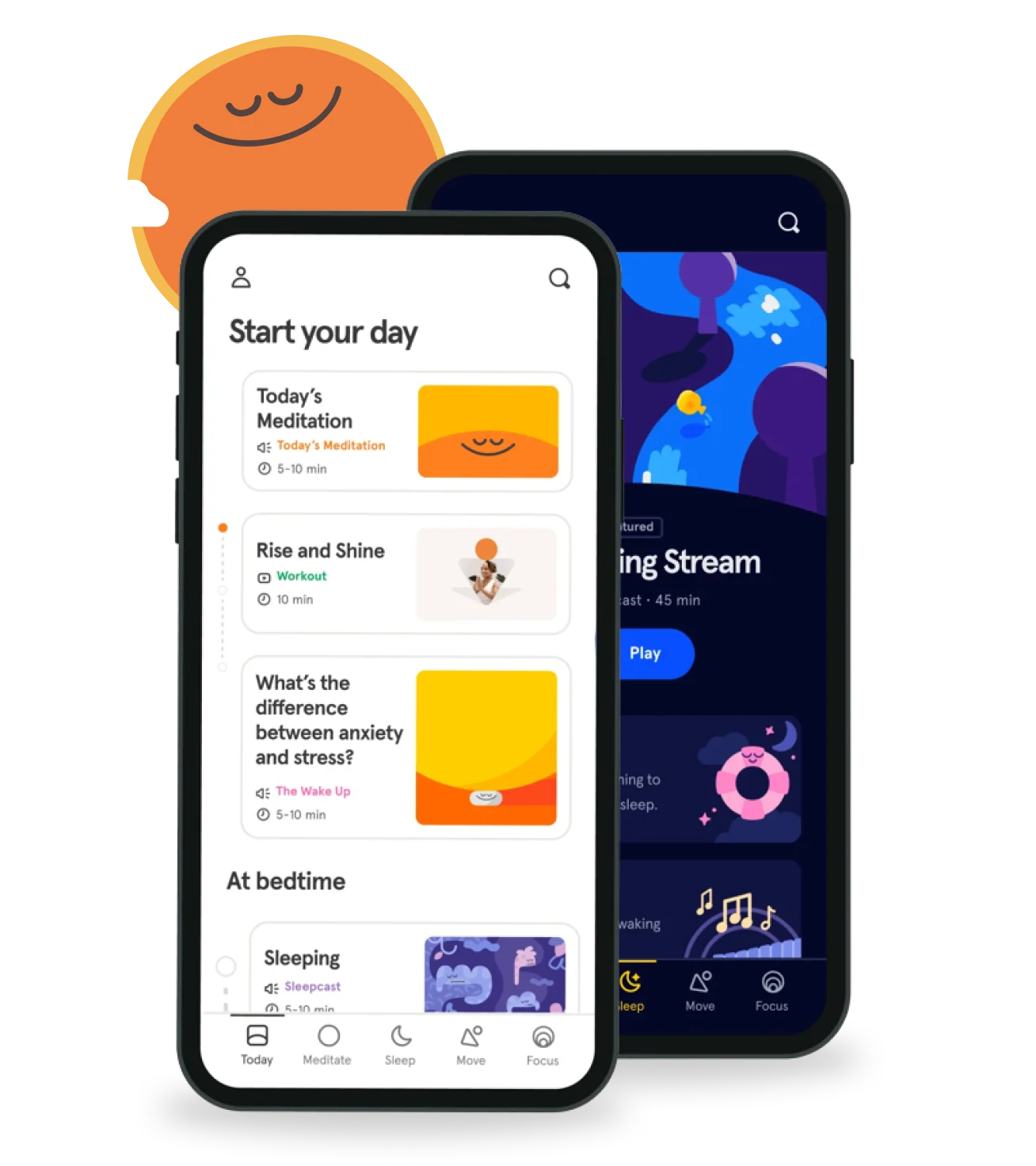How to build a firm sense of identity and why it matters
Kali Fields Williams - Mental Health Coach at Headspace, mom of 4 girls, and personal development geek
Your identity — that is, your personality, your ideas and beliefs, social constructs, and so many other factors that make you who you are — is foundational to your mental health. Having a firm sense of identity can help you overcome and prevent mental health challenges, like anxiety and depression, and relationship issues. Plus it can boost your overall quality of life and give you confidence and a feeling of purpose.
It’s common, however, to overlook the importance of identity when addressing mental health. Issues like lacking a sense of meaning in life, experiencing imposter syndrome, feeling insecure, being codependent, being unable to celebrate someone else’s success, lacking a sense of belonging, and having low self-esteem can all be traced back to self-identify. So, how do you begin to build or rebuild a firm sense of identity?
Below are a few strategies to help you start to define your identity.
Values exploration
“Who are you?”
To explore your values, start by answering the questions, “What do you value?” and “What is meaningful to you?”
First, make a list of your values and choose the ones you most identify with. (Examples of values include creativity, kindness, integrity, sense of humor, and many more. Ask a mental health coach for other examples, or do a quick search online.)
Next, reflect on the areas in your life where those values show up. For example, if creativity is one of your values, where is creativity showing up? Is it in your relationships? Or in your career? Are you happy with how that value is showing up in your life? If you are, that’s great! However, if those values are not showing up as much as you would like, consider the following questions: What needs to happen in order for those values to show up more? What will I gain if they show up more? What will I lose if they don’t? What is one step that I can take this week to invite this value into my life?
Strengths-based approach
“What are you great at?”
When you understand your strengths, you can discover who you can be when you’re at your best. Many of us were conditioned at a young age to focus on areas that need improvement. Paying attention to your strengths requires a mindset shift, but doing so can help you see how far you’ve come and the skills and strengths that got you there. It allows you to realize that inherently, you are resourceful, resilient, and capable.
In order to adopt a more strengths-based approach, it might be helpful to solicit feedback from those who know you best, whether a friend or colleague. Working with a coach who uses a strengths-based approach can also help.
Make a list in a journal of the strengths you’ve identified either through your own self-reflection or through feedback from others. Then, write down ways you can continue to grow these strengths and incorporate them more into your life.

Narrative exploration
“What’s your story?”
The idea of narrative exploration is to change your behaviors or thinking by creating a new story about yourself. It can be helpful to work with a coach when you’re engaging in narrative exploration.
It’s natural to give meaning to events, linking events together in a way that creates a story. The meaning you assign to those experiences will affect the way you approach your life. For example, if growing up you always thought of yourself as the black sheep of the family, you might now see yourself as constantly being left out or punished for being different. But, you have the power to reframe those experiences and tell a different story.
A coach can work with you to rewrite those stories that no longer serve you, and can help you create an alternative narrative that encourages new patterns of thinking and behaviors. For example, rather than telling yourself that you were the black sheep of the family, what if instead you saw yourself as an adventurous risk-taker, someone who’s not afraid to be different?
Try narrative exploration on your own by journaling, which can give you insight into your thoughts about yourself, and can help you identify stories that need reframing. One key benefit of journaling is that it can give you a fresh perspective. It can help you rethink your experiences, which can result in a richer and more productive understanding of who you are.
Self-compassion and acceptance
“How can I accept myself for who I am?”
When you’re in the midst of an identity struggle, you may be overly self-critical and self-judgmental, fixating on what’s going wrong in your life. Self-compassion helps you accept who you are and understand where your traits come from — even the traits you don’t appreciate.
To develop more self-compassion, get in the habit of asking yourself, “If a loved one was experiencing what I’m going through, how would I treat them?” Then consider whether you’re treating yourself similarly. If you notice that you’re treating yourself worse than you would a loved one, try to explore why that might be. What thoughts or feelings do you have about yourself? How are they different from the thoughts you would have for a loved one?
Being overly self-critical keeps you stuck in a rigid mindset, but self-compassion can motivate you to learn and incorporate new habits and behaviors that will serve you.
Taking these steps to develop a firm sense of identity requires time, persistence, and patience, but knowing who you are is at the core of overcoming a variety of common mental health challenges. Strengthening your self-identity can help you develop the self-confidence needed to help you achieve your goals in so many areas of your life, from relationships to career to changing behaviors and managing your emotions. But, it’s not always easy — if you’re struggling with these steps, reach out to a coach who can help. Knowing who you are, and feeling confident about your identity, will lay the groundwork for improving any mental health challenge you face.


Be kind to your mind
- Access the full library of 500+ meditations on everything from stress, to resilience, to compassion
- Put your mind to bed with sleep sounds, music, and wind-down exercises
- Make mindfulness a part of your daily routine with tension-releasing workouts, relaxing yoga, Focus music playlists, and more
Annual - billed at $69.99 USD/yr
14 days free
$5.83 USD/month
Monthly
7 days free
$12.99 USD/month

- © 2024 Headspace Inc.
- Terms & conditions
- Privacy policy
- Consumer Health Data
- Your privacy choices
- CA Privacy Notice







